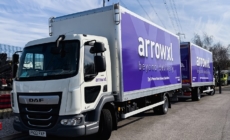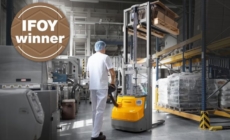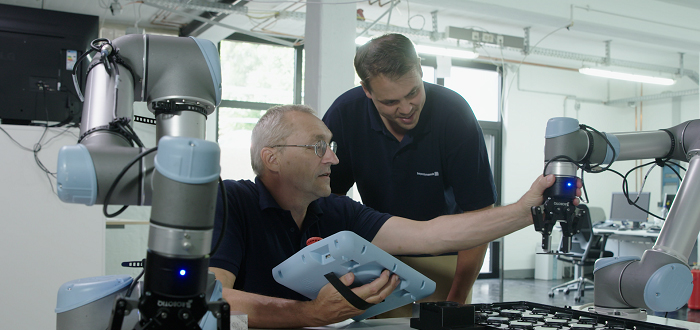-
ROSSLARE EUROPORT TARGETS HEALTH & SAFETY WITH CAMERA TELEMATICS PARTNERSHIP - 2 days ago
-
Landmark Study Reveals Wearable Robotics Significantly Boost Safety and Efficiency in Industrial Environments - July 24, 2024
-
Visku Tackle The Retail Seasonality Challenge One Pallet At A Time - July 22, 2024
-
KAMMAC AND BERGEN LOGISTICS STRENGTHEN FASHION & LIFESTYLE SERVICES IN THE UK - July 19, 2024
-
TENTBOX EXTENDS PARTNERSHIP WITH ARROWXL TO SUPPORT INCREASING DEMAND - July 17, 2024
-
The Perfume Shop improves customer journeys while driving profitability in partnership with Scurri - July 17, 2024
-
ZEROMISSION SECURES £2.3M ($3M) INVESTMENT TO ACCELERATE ELECTRIC FLEETS - July 16, 2024
-
BCMPA CELEBRATES SUCCESS OF 2024 CONFERENCE - July 15, 2024
-
Best of the Best: Jungheinrich Celebrates Triple International Award Win - July 12, 2024
-
GOPLASTICPALLETS.COM CALLS ON NEW CHANCELLOR RACHEL REEVES TO CONSIDER PLASTIC PACKAGING TAX REFORM - July 10, 2024
Universal Robots Mark Gray responds to today’s UK Spring statement.
Today’s Spring statement has prompted a renewed focus on the UK’s productivity, with the Shadow Chancellor highlighting Britain has the lowest rate of industrial robot use in the OECD.
In response, Mark Gray, Universal Robots has made the following comments:
“It is correct to say the UK has the lowest robot density in Europe and that it is the only G7 country that is lower than the world average. However, that means there is huge potential for our manufacturing base to leverage automation and increase productivity.
The high costs and inflexibility of traditional industrial robots puts them out of reach of the average SME. However, collaborative robots (cobots) are very different as they typically achieve payback within just six months. As UK manufacturers consider the consequences of Brexit to their operations cobots offer a clear strategy for addressing skills shortages, increasing output and upping productivity.

































